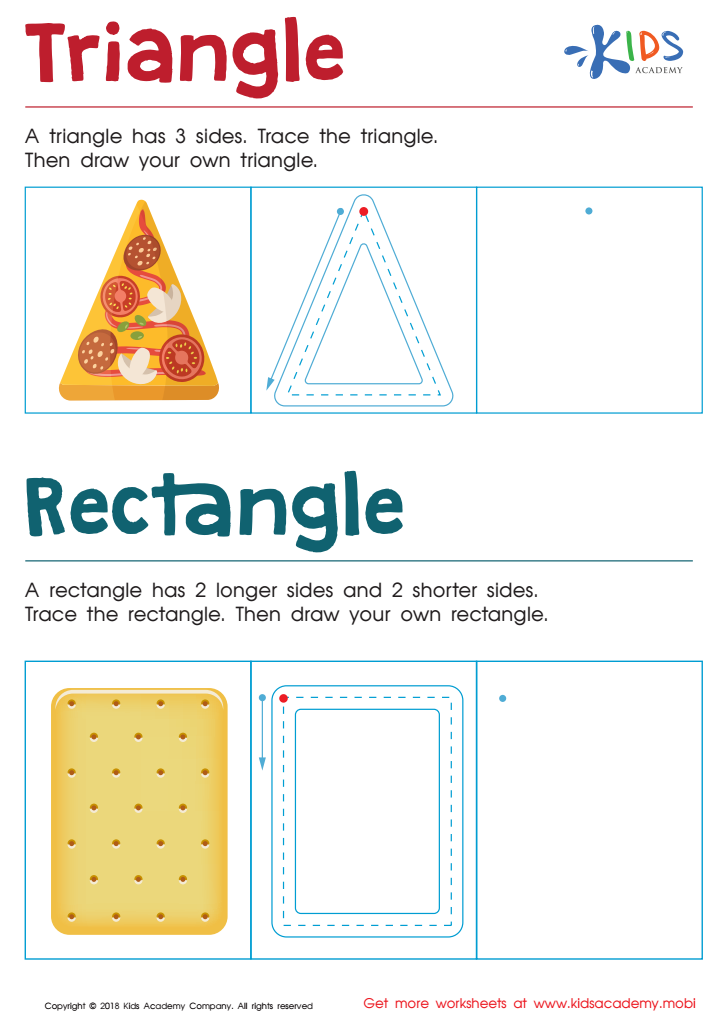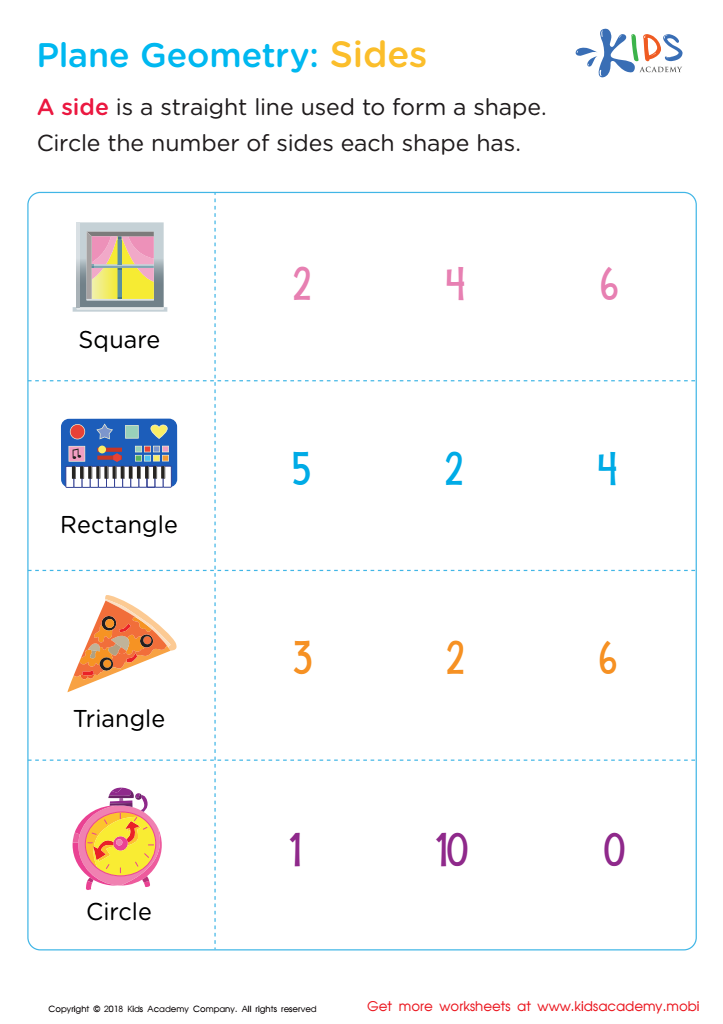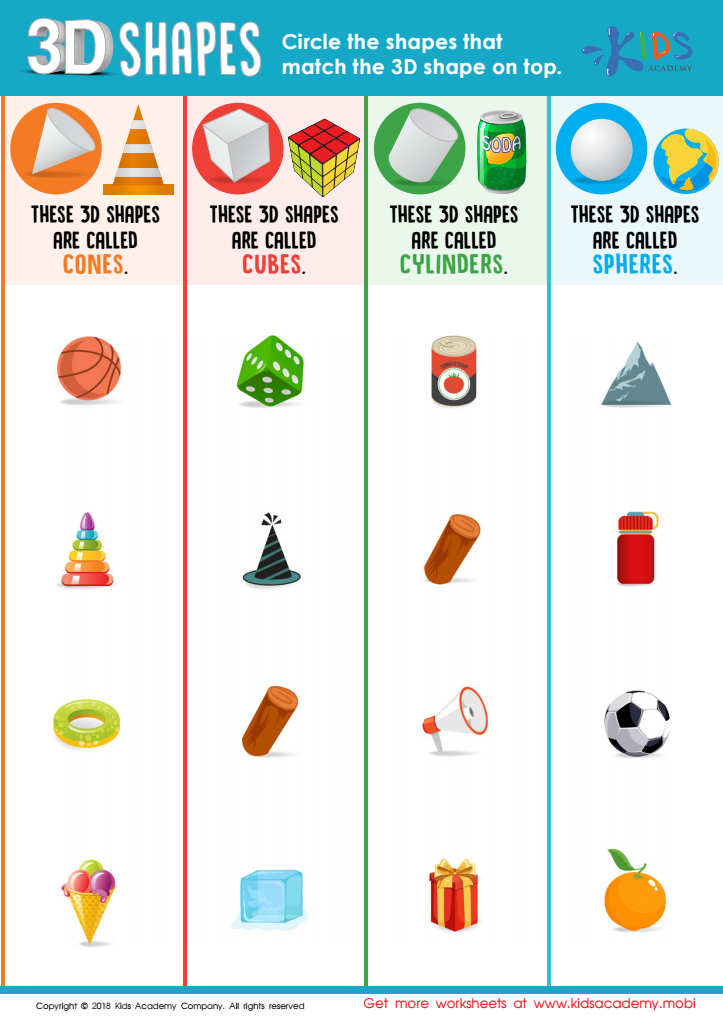Differentiating shapes Normal Math Worksheets for Ages 6-7
3 filtered results
-
From - To
Enhance your child's learning experience with our "Differentiating Shapes" normal math worksheets, specially designed for ages 6-7. These engaging worksheets introduce young learners to the world of shapes, helping them recognize, name, and differentiate various geometric figures through fun activities. Colorful graphics and age-appropriate exercises keep children motivated and eager to learn. Each worksheet aims to build foundational math skills while encouraging critical thinking and problem-solving abilities. Ideal for at-home practice or classroom use, our resources facilitate interactive learning, cultivating a love for math from an early age. Download today and watch your child thrive in shape recognition!


Triangle Rectangle Worksheet


Plane Geometry: Sides Worksheet


3D Shapes Worksheet
Differentiating shapes in math for children aged 6-7 is essential for fostering a solid foundation in geometry and spatial reasoning. At this developmental stage, children are naturally curious and eager to explore their surroundings. By introducing various shapes, such as circles, squares, triangles, and polygons, parents and teachers can engage children in hands-on learning, which enhances their understanding of geometry.
Differentiating instruction allows educators to address individual learning styles and abilities. Some children may thrive with visual aids, such as shape sorting activities, while others may benefit from tactile experiences, like using building blocks to create different shapes. This adaptability nurtures inclusivity and ensures that every child is challenged appropriately, boosting their confidence.
Additionally, understanding shapes is not just about math; it develops critical thinking and problem-solving skills as children learn to classify, compare, and manipulate shapes. This knowledge is vital for real-world applications, such as recognizing shapes in everyday objects and understanding patterns. Ultimately, investing time and resources in differentiating shapes fosters a love for learning, builds a strong mathematical foundation, and prepares children for future academic challenges. Parents and teachers play a crucial role in this developmental phase, shaping bright, capable learners.
 Assign to My Students
Assign to My Students



















